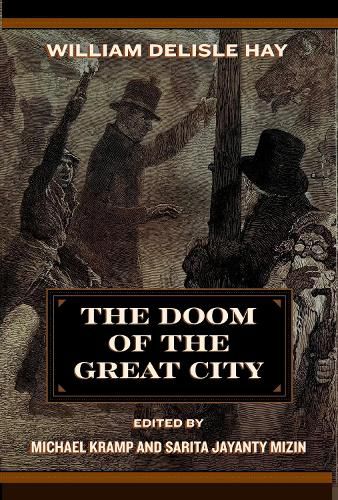Readings Newsletter
Become a Readings Member to make your shopping experience even easier.
Sign in or sign up for free!
You’re not far away from qualifying for FREE standard shipping within Australia
You’ve qualified for FREE standard shipping within Australia
The cart is loading…






William Delisle Hay's The Doom of the Great City imagines the destruction of London as a result of human-induced environmental devastation, the threat of which is becoming increasingly visible today. This urban apocalypse narrative connects to pressing cultural discussions on global warming, modern life in cities, public health, and the interconnectivity of human life on earth. This first critical edition of Hay's novella makes available his account of one man's tale of survival amidst a toxic fog--a survival that includes his relocation to Maoriland in New Zealand. The editors foreground the relevance of the story to present and future pandemics, the persistence of environmental disasters, and the global population's ongoing migration to cities. They place the narrative in dialogue with nineteenth-century concerns about climate change, pollution, natural resources, health care, empire, and (sub)urbanization that have remained significant challenges as we come to terms with the lasting impacts of the Anthropocene in the twenty-first century.
$9.00 standard shipping within Australia
FREE standard shipping within Australia for orders over $100.00
Express & International shipping calculated at checkout
William Delisle Hay's The Doom of the Great City imagines the destruction of London as a result of human-induced environmental devastation, the threat of which is becoming increasingly visible today. This urban apocalypse narrative connects to pressing cultural discussions on global warming, modern life in cities, public health, and the interconnectivity of human life on earth. This first critical edition of Hay's novella makes available his account of one man's tale of survival amidst a toxic fog--a survival that includes his relocation to Maoriland in New Zealand. The editors foreground the relevance of the story to present and future pandemics, the persistence of environmental disasters, and the global population's ongoing migration to cities. They place the narrative in dialogue with nineteenth-century concerns about climate change, pollution, natural resources, health care, empire, and (sub)urbanization that have remained significant challenges as we come to terms with the lasting impacts of the Anthropocene in the twenty-first century.